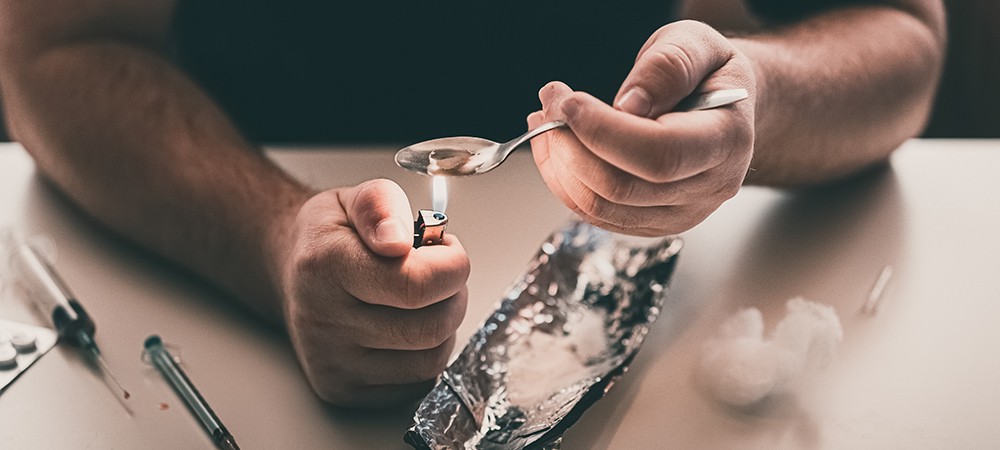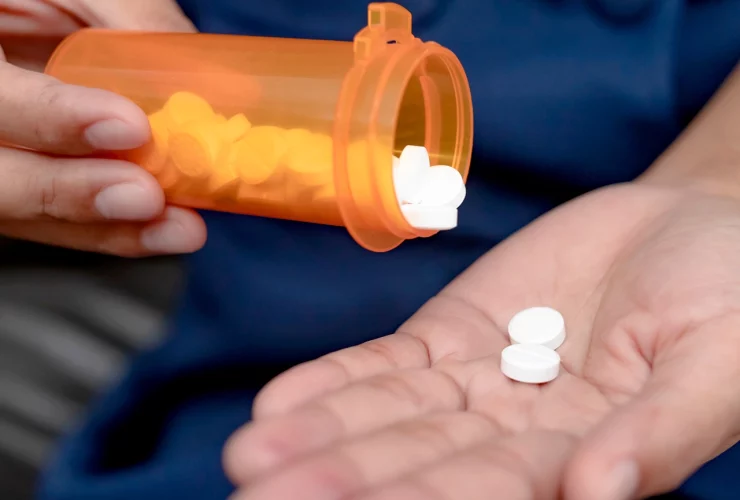10 Tips to Help Beat Amphetamine Addiction
Amphetamine addiction isn’t the fault of anyone, and neither is it a sign of weakness or irresponsibility.
Amphetamine is a prescription drug administered to help battle narcolepsy, attention deficit hyperactivity disorder, and in some cases, obesity.
But at the same time, amphetamine is a drug consisting of stimulants that can make the user an addict. The stimulants in amphetamines may help you improve your focus, stay alert, and solve sleep disorders. With up to 25 million users globally, amphetamines are one of the most abused prescription drugs globally.
Addiction to amphetamine comes bearing consequences, which may affect behaviours and psychological patterns. In some cases, amphetamine addiction may aggravate cardiovascular and neurological conditions. It can also cause blood diseases like hepatitis.
The silver lining is addiction to amphetamines isn’t impossible to fix. With the right tips and a comprehensive treatment program, you can beat amphetamine addiction.
Tips to Getting Rid of Amphetamine Addiction
The first step to stopping amphetamine addiction is to accept the addiction and understand the consequences. According to a study, understanding and accepting your addiction can be a motivator for recovery.
Of all the tips to beat amphetamine addiction, seeing a doctor is usually the best option. Usually, the first solution that comes to mind for an addiction is to stop the drug use immediately.
But withdrawal symptoms mean that quitting amphetamine cold turkey can be deadly. Instead follow these tips to craft an amphetamine addiction treatment plan.
Confirm addiction and study its effects
If you use amphetamine as your doctor has prescribed, there’s a high chance you may not be an addict. But when you start using the drugs more than the regulated prescription, addiction is about to set in.
Addiction to amphetamine doesn’t begin in one day. Only regular drug abuse can lead to amphetamine addiction.
Symptoms to look out for include nausea, body temperature rising, muscle tremors, weird heartbeat, hypertension. In the long term, the symptoms of amphetamine addiction become more evident. Dizziness, uncoordinated activity, skin and vitamin deficiency, and disorganized heartbeat are some of the common ones.
Admitting an addiction to amphetamine can be a challenging decision for almost anyone, especially when it was initially a prescription drug. You may feel disappointed in yourself, and you’ll want no one but you to know about the addiction. But acknowledging the addiction is one of the most important steps to treat amphetamine addiction.
In a survey of people older than twelve years in 2015, a total of 11.3 million persons used amphetamine within a year. Therefore, you admitting your amphetamine addiction doesn’t make you a different person.
Consult a medical professional
When you confirm your amphetamine addiction, the next step is to consult a medical practitioner. Medical practitioners are mostly the ones who prescribe the drug in the first place. As such, they know the reactions to expect from the use of the amphetamine drug.
The first job of the medical professional is to confirm the extent of the amphetamine addiction. With a few questions and expert observations, the medical professional can tell and predict the extent of the addiction.
The input of a medical professional is essential to addiction recovery — with the most important choosing the best recovery method. A doctor can also help you get psychological help like cognitive behaviour therapy to stop amphetamine addiction.
Some prescription drugs like Bupropion and Naltrexone may be an option for treating and reducing amphetamine dependence. But, only an amphetamine treatment specialist can determine the best course of action.
From our experience, using drugs for addiction may not be the safest option, as it can lead to another addiction. Thus, unless a doctor prescribes a drug for amphetamine addiction, please don’t self-medicate.
Talk to loved ones
All around us, we have friends and family that we live with and have close connections with. These friends and family can influence you into amphetamine addiction, but at the same time, they can help you out of the addiction. Because there’s an existing relationship between you and your loved ones, it’s usually easier to speak up to these people about your condition.
Addiction is, however, a fragile issue that you can’t tell just anybody about. You first need to identify the friends and family you can tell about an addiction.
For instance, let’s assume you open up your addiction history to a family member, and then you hear the history from another person. Not only has the person ruined the trust, but you won’t have the confidence to tell anyone about any addiction again.
If you’re lucky enough to have a doctor or therapist as a close friend or family, that should be the first option to consider. A friend who has no history of drug addiction also makes a good choice to open up to about your addiction. Opening up to a recovering addict may work, but it may end up in a relationship of two addicts.
Create a supporting environment
From the moment you acknowledge you have an amphetamine addiction, you should create a good environment for recovery. A good environment starts from the people around you .
You can’t keep hanging around with the friends who introduced you to amphetamine addiction and expect anything to change. It won’t be easy to cut off your friends, but it’s the best option through your recovery period.
After cutting off the old friends, you need to focus on making new friendships. To start with, you need to ensure your therapist and doctor are your close friends to help your recovery.
Also, you can make new friends with persons with zero histories of alcohol and drug abuse. As much as possible, stay in an environment where you can meet people who hardly focus on drug addiction. With a supportive environment, you’ll only need little effort to help the amphetamine addiction recovery.
Withdraw from the drug attentively
Withdrawal from the amphetamine drug is the most important but dangerous step to recovery. The main goal of addiction recovery is to stop taking the drug, but it doesn’t come easily. Before you stop the drug, it’s best if you take some time to prepare and plan for the process.
The first thing to put to mind is to change your amphetamine-enabling environment immediately. When you stop the drug, there’s a high chance you’ll crave amphetamine heavily. If you’re in an environment where you can get the amphetamine easily, you’ll fall back into the addiction.
If you are a short-term amphetamine addict, you can try to put up with a friend or relative that supports you. But if it’s a long-term addiction, the best bet is to register in an addiction center for an inpatient program.
After getting a safe spot for your withdrawal, you have to anticipate the resulting symptoms. Within the first day of withdrawal, you may experience an extreme craving for amphetamine as well as some symptoms. You may also experience concentration struggles, sleep disorder, depression, and tiredness.
These symptoms may have severe effects but will wear off within a maximum period of three weeks. One of the best tips to beat the symptoms during withdrawal from amphetamine addiction is accountability.
Related Article: 10 Tips to Get Rid of Marijuana Addiction
Create a routine
Planning your day can help you increase productivity and efficiency in your daily activities. To stop drug addiction, however, planning your day also has its benefits.
Your daily plan doesn’t need to contain how to beat amphetamine addiction. Ensure the plan has nothing to do with amphetamine, as it may serve as a constant reminder. Fill it up with normal activities. With the routine, your system will subconsciously follow the pattern and get used to it.
Focus on new activities
Free time may be contributing to Amphetamine abuse. If you have activities piling up from when you wake up until when you sleep, you may not have time for amphetamine abuse.
Focusing on new activities may not stop amphetamine addiction, but it won’t give room for it. For instance, let’s assume you exercise in the morning and evening before and after work. By the time you finish the exercises in the morning, you’re preparing for work, and in the evening, it’s bedtime.
With the newly found hobbies, there’s hardly any time to think of an addiction.
Get a Support Group
Withdrawal and medical attention are enabling tips to beat amphetamine addiction, but it’s not everything. The best way to overcome depression from addiction is through support groups. In a support group, everyone shares their experiences and their respective addiction recovery journey. On one part, their stories will inspire you to continue, and on another part, you’ll feel part of a family.
Stay disciplined
Initially, when you take amphetamine, the feeling of being alert is an enjoyable one. Thus, it’s normal to miss that feeling from time to time. You owe it to yourself to remain disciplined enough to continue your recovery journey.
Likewise, you need to ensure you’re not replacing the amphetamine abuse with another drug. Remember, the aim is addiction recovery, not substitution.
Stay attentive and keep records
Addiction recovery is a journey, not a destination. Regardless of how long you’ve been clean of amphetamine, it doesn’t mean you can’t go back to the addiction.
As much as possible, you have to stay attentive to your cravings and keep records. If you stay one month without the substance, take a record and even celebrate it. That way, you’re motivating yourself for the next month and years to come.
Final Thoughts: 10 Tips to Help Beat Heroin Addiction
Wrapping it Up
You can try the different tips to beat amphetamine addiction discussed in this article for yourself or a loved one. Of all the recovery processes, the most difficult part is withdrawal from amphetamine. Thankfully, the symptoms and complications of amphetamine withdrawal are easier to manage when you involve expert help.
With our facilities, experience, and professionals at Inspire Change Wellness Centre, we can help you with your recovery journey. We’ll work with you to understand where you are and take you to where you wish to be — without addiction. Contact us today to discuss your treatment options.





